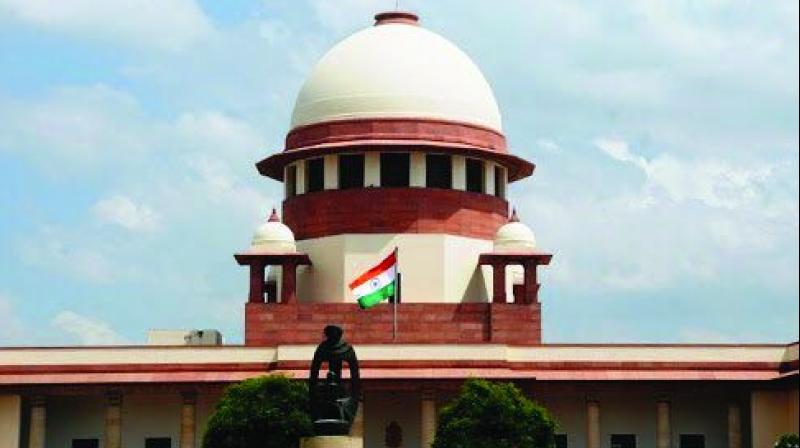Supreme Court refuses to stay 69 per cent quota law in Tamil Nadu

New Delhi: In a huge relief to backward class students, the Supreme Court on Monday refused to stay the 69 per cent quota law, which has been challenged on the ground that the quota exceeds the maximum 50 per cent limit imposed in the Mandal commission judgment.
A Bench of Justices Arun Mishra and Ms. Indira Banerjee, after hearing senior counsel K.M. Vijayan and counsel Sivabala Murugan, dismissed the application, seeking stay of operation of the 1994 law. Counsel pleaded for creation of additional seats as was being done all these years, but the court turned down the prayer.
The Bench said the main petition questioning the validity of the law would be heard in November to decide whether the matter required adjudication by a five judge Constitution Bench.
The petitioners Sanchana and Akhil Annapoorani said she came well within the cut off mark required for 50% of the total seats available for admission to Medical College in the Government College, as originally announced including fresh additional seats sanctioned for the Academic year 2018-2019, including the government seats available in Private Medical colleges.
The Petitioners were unselected from the open category seats due to 69% reservation. In the overall merit list without taking into consideration the students who did not join the course due to various reasons and the number of seats available under surrender seats in the All India Quota, all the students who prima facie come within the quantitative restriction of 50 per cent are entitled to be admitted to the Medical College. The Petitioners Rank entitle them to get admitted in the Government seats in any one of the Government colleges and who is not admitted due to 69% reservation in State of Tamil Nadu. They soughtstay of the operation of theTamil Nadu Backward Classes, Schedules Castes and Scheduled Tribes (Reservation of Seats in Educational Institutions and of Appointments or Posts in the Services under the State) Act, 1993.
They said “the conduct of the State of Tamil Nadu having exceeded the quantitative restriction of 50 per cent reservation as decided by this Court in Indira Sawhney case and the failure to identify creamy layer among the backward classes in State of Tamil Nadu alone resulted in a Constitutional injury to the Citizens of State of Tamil Nadu against the Constitutional mandate, thereby denying a meritorious students to get admission to professional college in accordance with the Constitution.
The petitioners while seeking to quash the 69 per cent quota law sought a direction that they should be admitted by creating extra seats as was being done for the last two decades.
They alleged that the law, which came into force in 1994, was passed without legislative competence, without enabling constitutional amendment of Article 15(4), in excess of 50 per cent reservation alone, and in conformity with the 9-Judges judgment of this Court in Indra Sawhney Vs. Union of India – 1992. Unless the 1994 lawstayed, the applicants will not be admitted to the first year M.B.B.S/B.D.S. in the Academic Year 2018 – 2019 on the basis of their marks within the 50 per cent reservation available for the open category candidates, they said and sought a direction in this regard.

